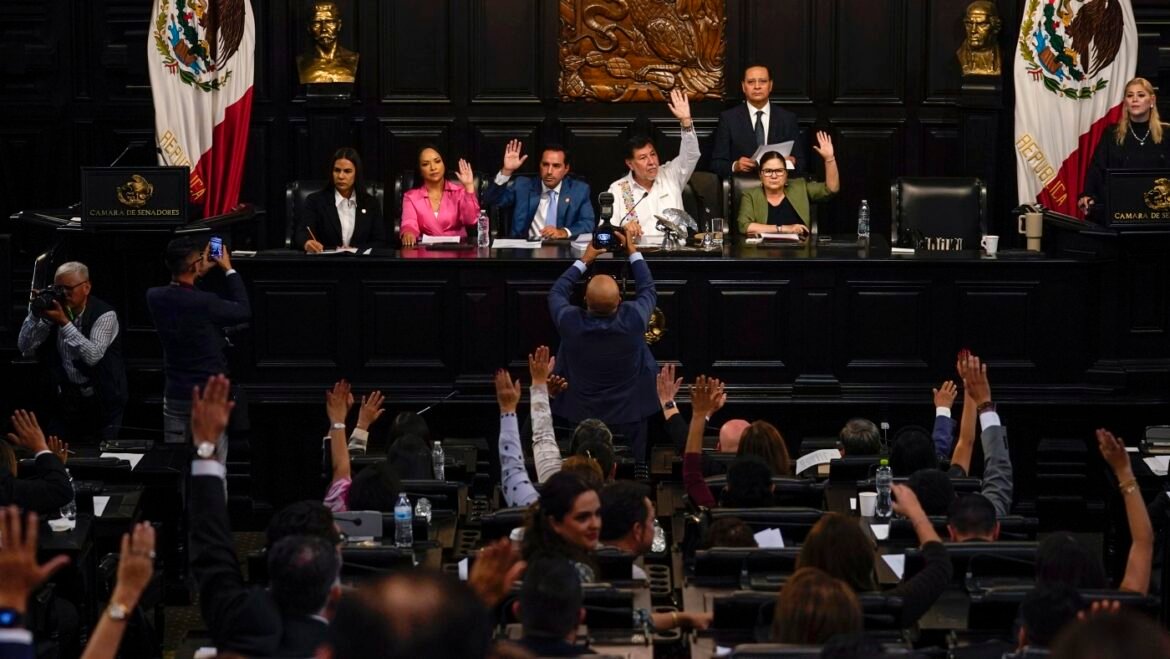Mexico’s Supreme Court has upheld a judicial reform mandating the direct election of judges and magistrates, after narrowly failing to block key parts of the legislation. This outcome is a win for President Claudia Sheinbaum, who recently took office, and defuses potential tensions between Mexico’s executive and judiciary branches.
Supreme Court Vote on Reform’s Constitutionality
In a lengthy session on Tuesday, Supreme Court justices debated whether the reform, passed in September, was constitutional. Of the court’s 11 justices, seven voted in favor of rolling back parts of the reform, falling just one vote short of the eight needed to block the measure. A subsequent proposal by Supreme Court President Norma Piña to reduce the required majority to six votes also did not pass.
President Sheinbaum argued that the Supreme Court did not have the authority to review this legislative reform, which was initially introduced by former President Andrés Manuel López Obrador and strongly supported by Sheinbaum.
Key Aspects of the Judicial Reform
One of the reform’s most debated elements is the direct election of judges and magistrates, a significant shift in how Mexico’s judiciary has traditionally functioned. The proposed changes would also allow judges handling organized crime cases to remain anonymous for security reasons, which has raised additional concerns.
Mexico’s lower house passed a constitutional amendment in October, stating that constitutional reforms cannot be challenged, intensifying questions over the scope of the Supreme Court’s authority and the separation of powers.
Sheinbaum’s Position and Reactions from the Judiciary
With the court’s ruling, Sheinbaum’s administration secured a victory that supports its broader vision for judicial reform in Mexico. Supreme Court President Norma Piña, however, voiced concern, emphasizing that “no institution in our country is above the Constitution.”
Under the reform, elections are scheduled for June 2025 to fill various judicial roles nationwide, including a restructured Supreme Court with a reduced panel of nine justices. Supreme Court Justice Alberto Pérez voted against the attempt to block the reforms, arguing that the Supreme Court’s role should not extend to these legislative changes.
The decision underscores a transformative moment for Mexico’s judiciary, with implications for the balance of power among the country’s governmental branches.
Stay connected to know more on arcnews.online for global news like Mexico’s Supreme Court Upholds Controversial Judicial Reform Requiring Elected Judges. For videos updates visit our YouTube. Do subscribe to Arcnews to get latest updates directly in your mail box.
Have A Great Day.


